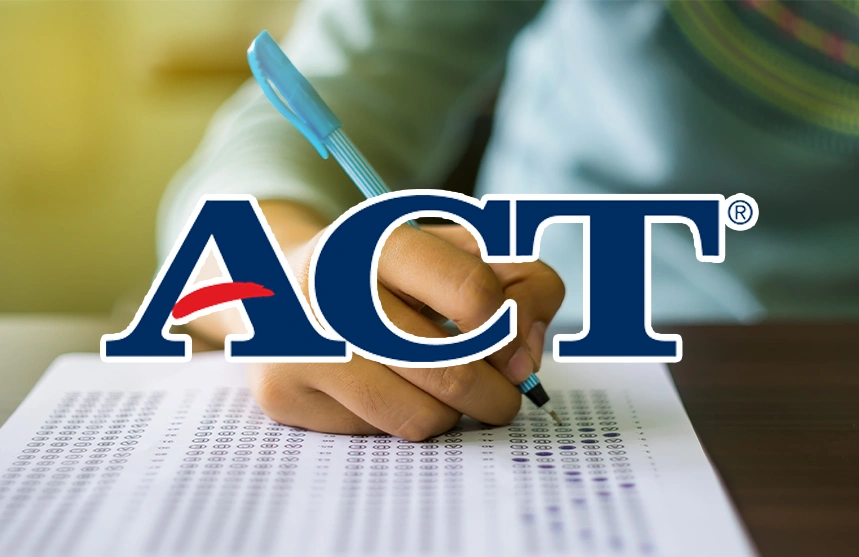Eligibility for OET Exam: Everything You Need to Know
GRE Exam Preparation 2025: Your Ultimate Guide to Success

If you’re aiming to study abroad in 2025, the GRE (Graduate Record Examination) could be your gateway to top universities across the globe. Whether you’re targeting a master’s in engineering, business, psychology, or any other graduate programme, a strong GRE score significantly boosts your application by showcasing your academic readiness and analytical skills.
In this comprehensive guide, we’ll walk you through everything you need to know about GRE preparation in 2025 from effective strategies and study plans to top prep resources, timelines, and expert tips to help you achieve your target score and secure admission into your dream university.
What is the GRE Exam?
GRE is a standardised test taken with ETS and accepted by thousands of graduate schools and business programs worldwide. It tests your analytical writing, quantitative reasoning, and verbal reasoning.
It will test your:
- Critical thinking
- Analytical writing
- Problem-solving ability
- Knowledge of advanced verbal and quantitative skills
Importance of the GRE Exam 2025
Although certain universities adopt test-optional policies, the GRE remains required or recommended among many of the best programmes. This is why the GRE is important:
- Serves as a comparison point to judge applicants all over the world
- Needed to receive scholarships, research assistantships, or fellowships
- Admits to a lower GPA/ absence of academic background in the subject matter
- In demand among competitive master’s and PhD schools
Tips to Prepare for the GRE of 2025
If you’re planning to take the GRE in 2025, you’re likely asking yourself: Where do I begin? How do I prepare to achieve the best possible score? With the updated GRE test format and increasing global competition, it’s more important than ever to approach your preparation with a focused and flexible strategy.
This blog offers some of the most effective GRE Preparation Tips for 2025. From choosing the right study materials to building a smart study plan, these insights will help you craft a solid prep strategy, stay motivated, and give yourself the best shot at success.
1. Begin Early and Plan Everything
What is one of the most underrated strategies? Taking the time to do things.
You should ideally start preparing at least 3 to 4 months before your GRE exam, especially if you can study for 3 to 4 hours each day. Starting early also helps you book your GRE test date in advance on the official ETS (Educational Testing Service) website, so you can secure your preferred slot and test centre.
2. Revise Your Universities/Courses
Start by making a list of your dream universities and the courses you’re interested in before diving into vocabulary or maths prep. Check their admission requirements, including the minimum GRE score and whether they require other tests like IELTS or TOEFL.
Then, look at the previous year’s GRE Cut-Off Scores to understand what’s considered a competitive score for your chosen universities. This will help you set a clear and realistic target score, which leads us to the next tip.
3. Compose a Reasonable Target Score
Instead of studying aimlessly, come up with an actual target score depending on what your chosen universities would expect.
For example:- If you’re aiming for tier 1 colleges and universities in the USA: shoot for a 320-330 score, if you’re aiming for tier 2 programmes: shoot for a 300-315 score, if you’re aiming for business/engineering: a heavier concentration in the Quant is required; and if you’re aiming for arts/humanities, focus on Verbal ability.
Once you’ve set your target score, build your entire study plan around achieving it, focusing on the areas that will help you get there.
4. Get a look at the GRE 2025 Syllabus & Pattern
The first thing you should do regarding strategy prep is to get completely clear on the form of the exam and the question style.
The newly revised GRE format (to be implemented at the end of 2023) currently includes a reduced time for the test (less than 2 hours). Become acquainted with everything:- Analytical Writing (1 Task)- Verbal Reasoning (27 questions)- Quantitative Reasoning (27 questions)
Learn to think like the ETS people pose their questions, and also do not memorise the syllabus. This knowledge will enable you to customise your practice in a better way.
5. Select your preferred Method of Preparation
Since you got to know the syllabus now, you have to decide the way you want to study:
Self-Study: Great in the case of the disciplined Learner. Apply systematic books and web tools.
Online Courses: MetaApply IE helps you with your IELTS Preparation
Offline Coaching: It is Comfortable to be accountable, get personal coaching provided by experts and interact with peers.
What matters is to elect what fits your learning style and your schedule.
6. Do Regular Mock Tests in Real Conditions
Your best friends are mock tests. Recreate the conditions of examinations as closely as possible: time-checked, silence, short rest. This will assist you in time management, give you stamina buildup for the actual exams, and show you the weak areas to work on before the actual tests.
7. Do a SWOT Analysis and Work Accordingly
One of the pitfalls that students fall into is that they spend too much time, either on Verbal or Quant, depending on their background, and neglect the other.
A more constructive idea would be to find your weaker area as soon as possible, and spend more time on work to cover the weak points. Keep on practising what you already do well so that you do not lose the advantage. Do not leave AWA (Writing an Essay)- a well-written essay can be added to your application.
8. Create your own Personal Study Plan with Goals
Your GRE study strategy ought to be rational, organised as well and measurable.
An example of a 3-month plan is as follows: Month 1: review basic principles of Quant & Verbal, vocabulary study each day. Month 2: take one mock test each week and analyse it, work on areas of weakness.Month 3: Use full-length tests, timed drills, and revisit major subjects. Trackers or applications stay on top of the daily objectives and actions.
9. Don’t let a mistake repeat
You should not only have a mock test but also analyse it. Review each test and take time to learn. The questions that you answered incorrectly and why. What were the time, problematic or knowledge tendencies in your mistakes (e.g. reading carelessly, wrong advice in graphs)\n\nKeep a record of your mistakes and update them regularly. This is where the true learning goes in.
Conclusion
Preparing for the GRE 2025 isn’t just about how much you study, but how strategically you approach it. With the revised format and rising competition, a tailored and well-structured plan is essential for success.
Remember, the GRE score is just one part of your study abroad journey. From shortlisting universities and crafting strong SOPs to handling visa applications and exploring scholarships, MetaApply IE is here to support you every step of the way.
Frequently Asked Questions
A raw score of 320 or above is considered excellent, while a score of 310 and above is competitive for most top programmes. If you're aiming for the Ivy League or leading European universities, it’s wise to set your sights even higher.
You are allowed to take the GRE once in 21 days (5 times within a 12-month duration).
Not necessarily. Many students successfully crack the GRE through self-study using online resources. However, coaching can be helpful in keeping you on track, especially if you start noticing certain warning signs.


















































